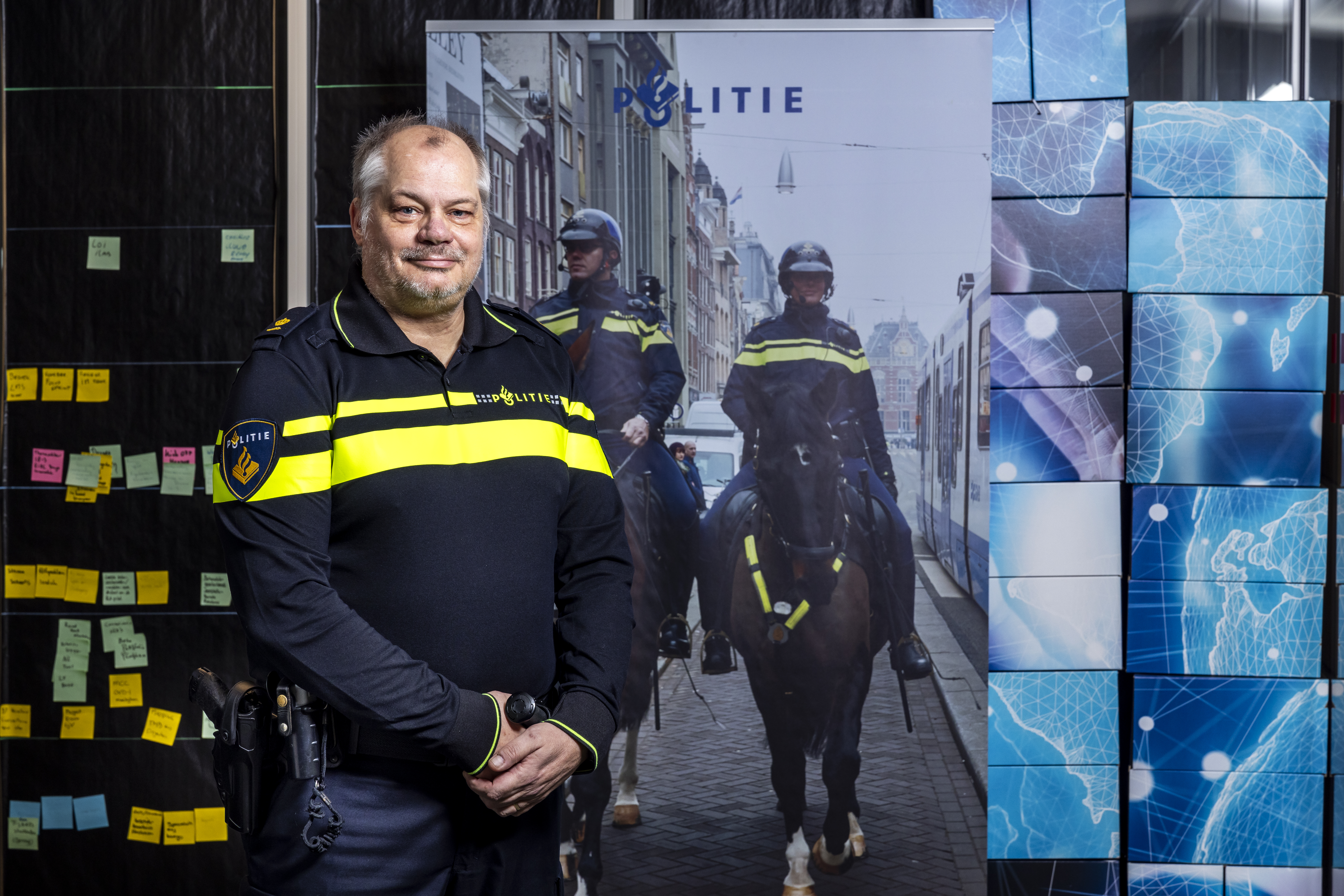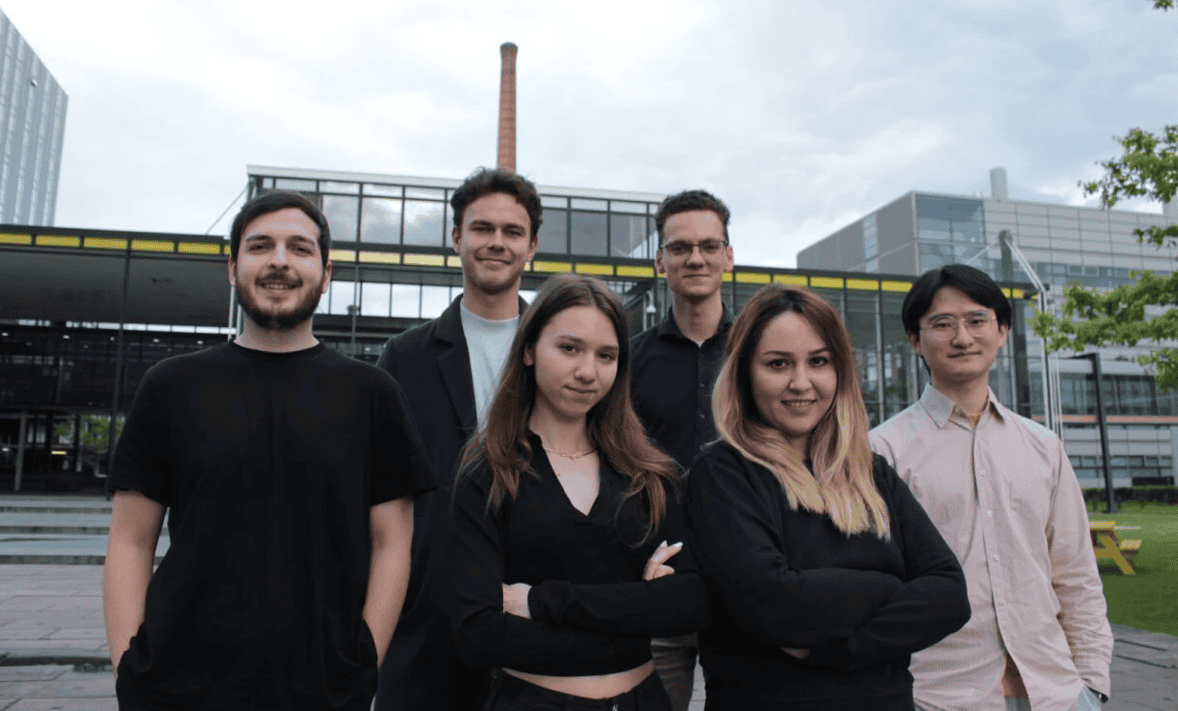
Attacks, assaults, rapes, and murders. Crimes that could potentially be prevented if only there were people that can come to the rescue. Unfortunately, victims are often unable to ask for help or just simply – no one hears them. The emergency call system from the German start-up profsec is designed to help prevent crimes. In the event of an emergency, a person is able to warn everyone within a 300-meter radius at the touch of a button on this device, including the police.
Innovation Origins spoke with profsec co-founder Gaby Frontzeck about the start-up and the problems associated with getting the necessary funding as a woman.

How did you come up with the idea to start the start-up?
The trigger was harsh reality. A roommate of my daughter’s was raped near the entrance to her apartment. Unfortunately, such calamities are part of our daily lives. Rapid intervention and help is usually unavailable because urgent situations often go unnoticed. People in distress can’t reach anyone. As a result of what happened and the realization that it could happen to anyone, I started to think about a solution to this problem. I hope that people will start to feel safer again this way.
What makes profsec or your product so special and what problems does it resolve?
In the future, our emergency call system can restore a sense of security to a lot of people. It’s suitable for everyone as it is very simple to use. It’s not dependent on an app, the internet or any control centers. Other emergency call systems depend on additional devices or control rooms. These work via a landline telephone connection. Other systems work via apps where you can alert a control room or a person who also happens to have that same app. In all these cases, you will always need a landline or a smartphone. The question is whether that’s of any help to you. Do you have enough time to activate your app in that kind of situation? Is there Internet access? The profsec® emergency system is independent of these factors. And it engages citizens.
You can use it to send a direct distress signal to everyone in your immediate vicinity. This ensures that help is immediately available. Our emergency call system is portable and can be worn anywhere on your body. Consequently, it won’t be easily noticed by a perpetrator. An additional camera and microphone integrated into the system send photos directly to the nearest police station via a secure website. Police are able to intervene quickly and any images can be used in the criminal investigation.
What was the biggest hurdle you had to overcome?
I’m very good at the commercial part of a business. However, I had no idea about the technical implementation of the product. With limited financial resources of my own, it was a huge challenge to find suitable specialists who could vouch for the feasibility of manufacturing this product. And of course, financing product development and specialists’ costs.
Is the cliché true that it is more difficult for women to raise money? How do you address that?
From our perspective, yes. Even when someone from the government fought for our project and talked about it with the bank’s board of directors, the board delegated the application to a staff member. He refused us funding because the project was too innovative. This rationale immediately led to the suspicion that the real reason was that a woman intended to set up the company. My partner made inquiries. He was subsequently asked why he could not register as a director, only then could the financing be renegotiated.
This led to the conclusion that it really is more difficult for a woman to raise funding. It’s not just a cliché. Potential investors were also careful to ask about a male CEO at the initial meetings. This has led us to keep on fighting and searching for other potential options. We’ve already suffered plenty of setbacks. But we won’t rest, not even as a team, until everyone has our emergency call system at their disposal.
Was there ever a time when you wanted to give up?
Giving up was never an option for us. Even when we finally heard, despite overwhelmingly positive feedback from interested investors, that we were in a “premature phase.” They said that in principle they were only interested in an investment at a later stage. But we really need the support now. As a starter, you obviously have to deal with ups and downs. But the fact that there is interest in principle has prompted us to keep on going.
What are you especially proud of?
The patent that has already been granted. It’s our registered trademark. The fact that we have already attracted a lot of public interest and that one of the largest companies in the world has expressed interest. The fact that members of the federal government took the time for several personal meetings. We were invited to do a radio interview. A podcast has been made of that as well. Our local council has placed an order for their employees. The mayor supported us in that.
We’ve had interviews across various media outlets. And we are proud that we never gave up. In spite of all the obstacles, a start-up company has to deal with. We are proud to see our ‘baby’ grow one step at a time and that we are getting closer and closer to our goal.
What can we expect from profsec this year?
Some events have been planned to raise awareness on the topic of safety and behavior in emergency situations. We plan to start running tests so we can get reliable figures once the prototype is ready. The current short explanatory video on our website (www.profsec.de) will be replaced by a new one. We’ll do everything in our power to make the product ready for series production so that we can enter the market.
What is your vision for profsec? Where do you see yourself in five or ten years’ time?
Our vision is that our emergency call system will be available to everyone worldwide over the next few years. There are also many more possibilities for its application and we’ll be working on that in the future. According to our motto: “If just one life is saved or one crime prevented, it makes the world a little bit better.”
You can read more IO articles on start-ups via this link.








